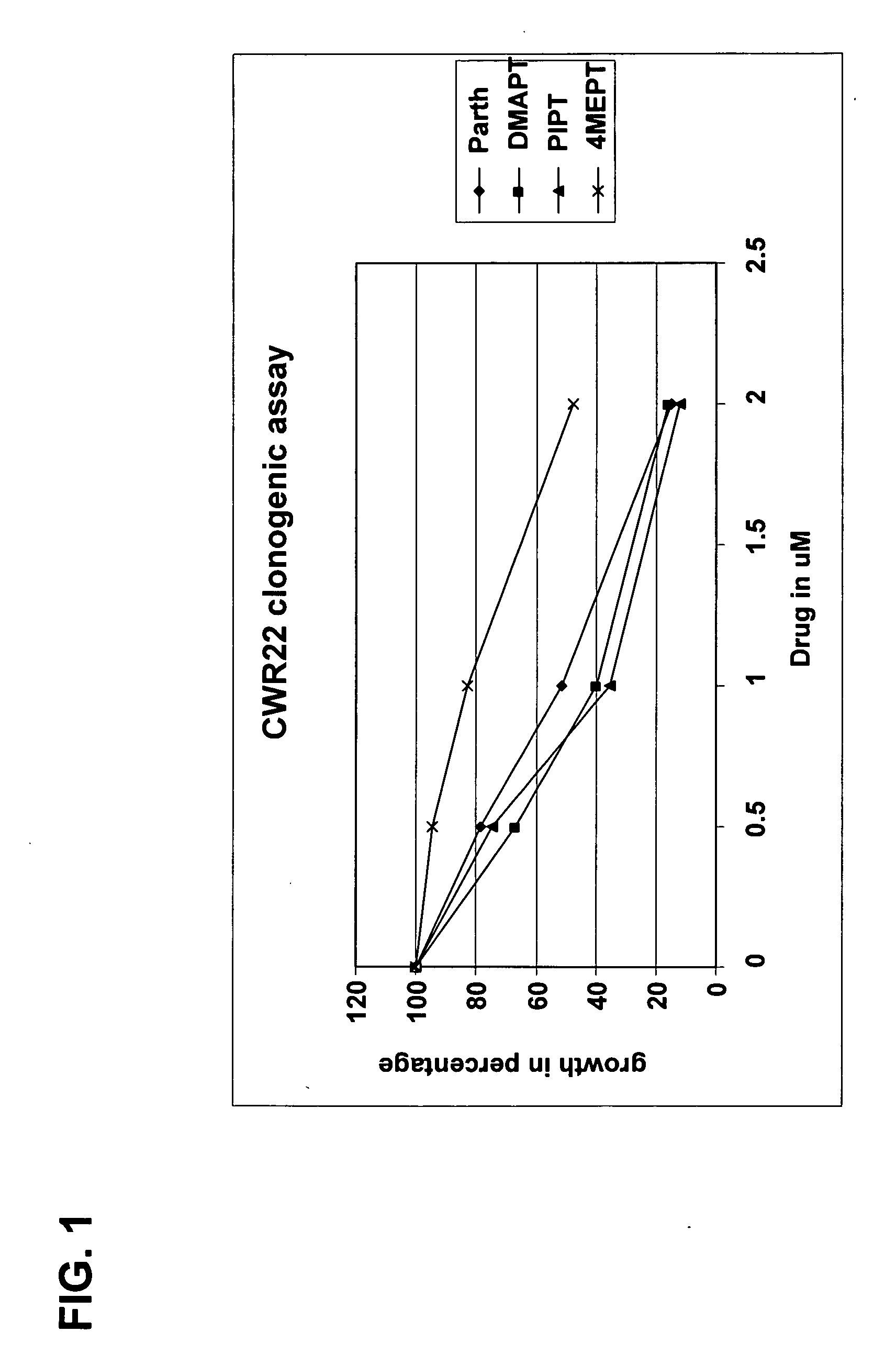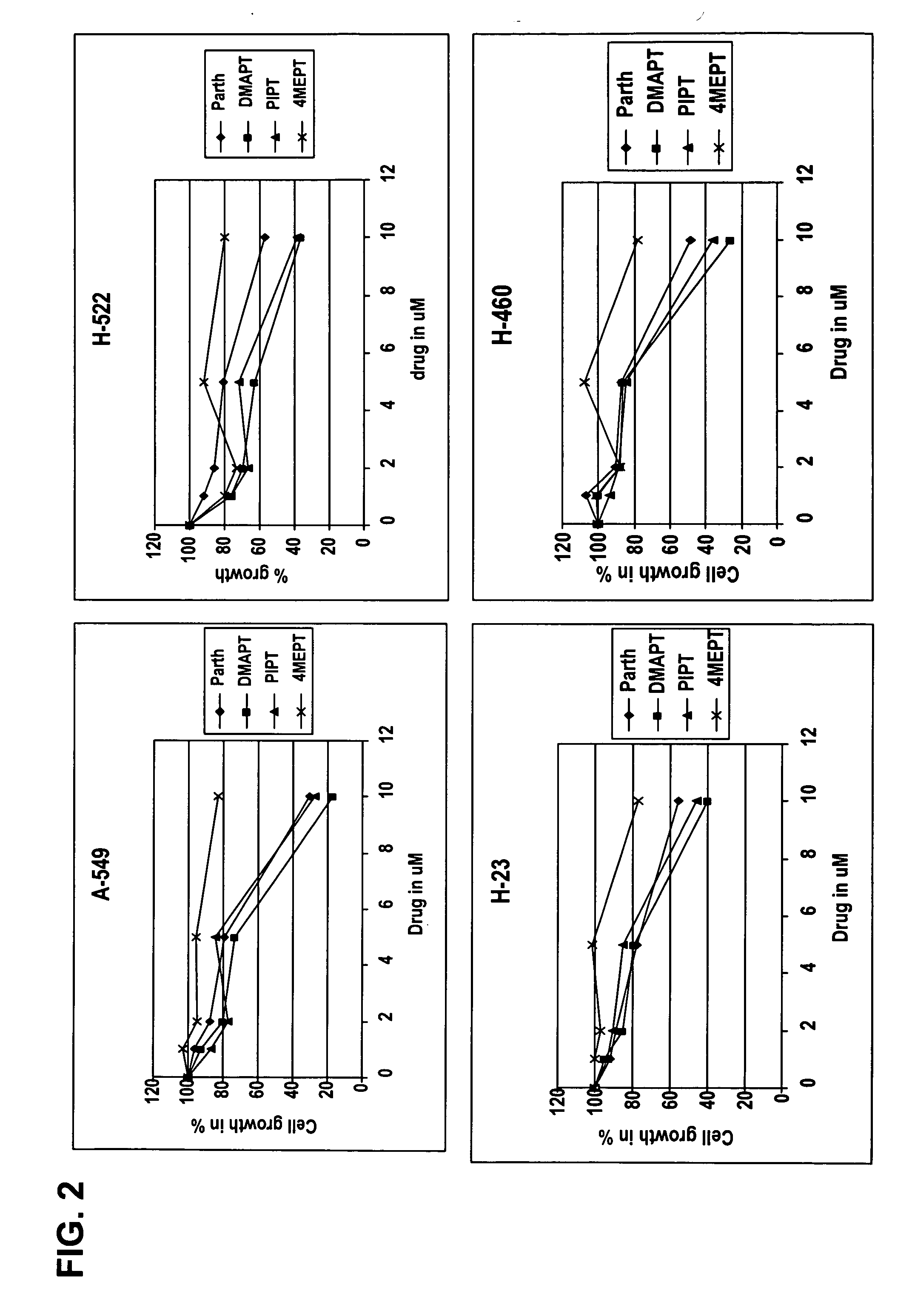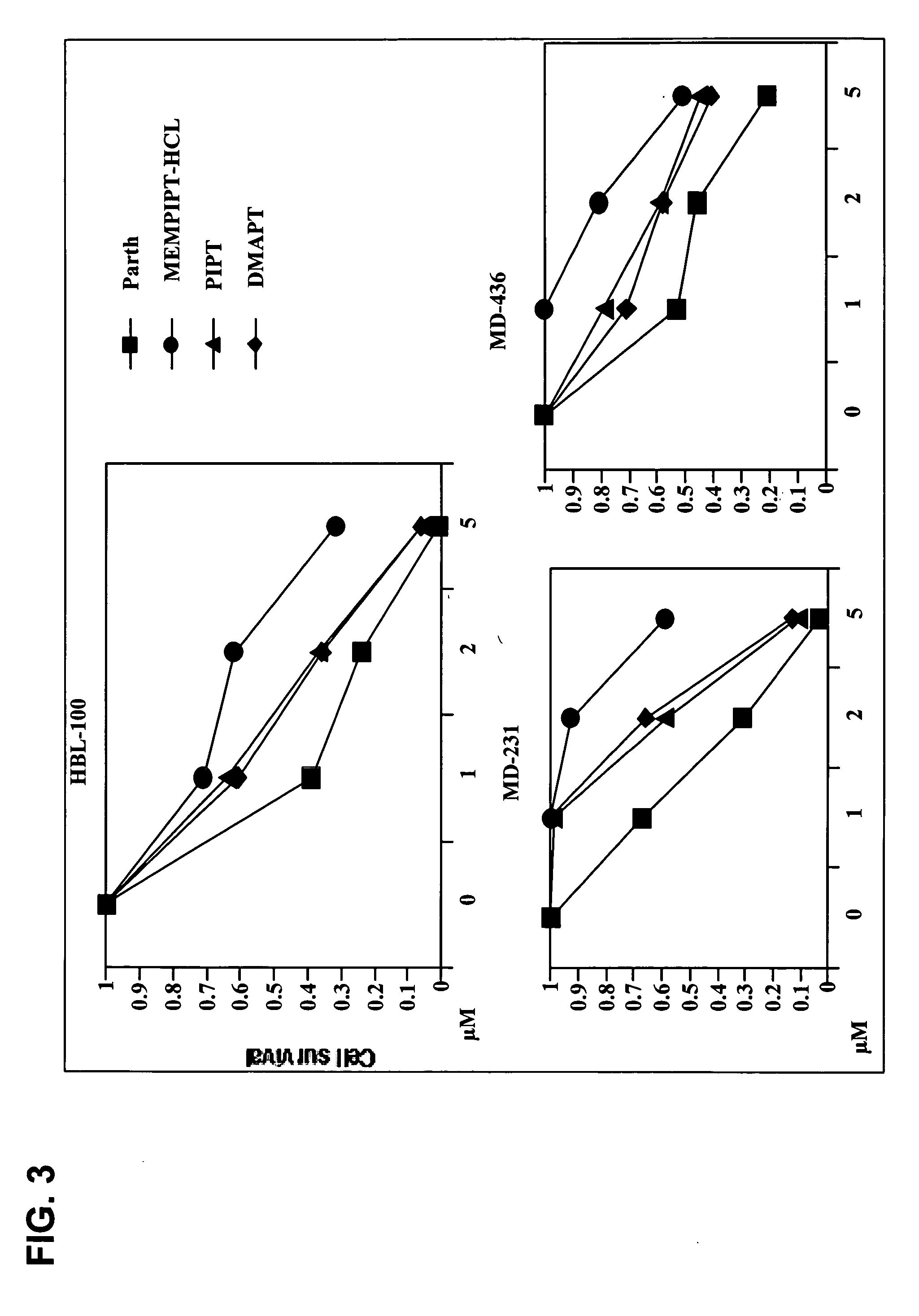Use of parthenolide derivatives as antileukemic and cytotoxic agents
a technology of cytotoxic agents and parthenolide derivatives, which is applied in the direction of biocide, animal repellents, drug compositions, etc., can solve the problems of limiting its further development as a therapeutic agent and loss of antileukemic activity, and achieve the effects of inhibiting cancer cell growth, and inhibiting the growth of said cancer cells
- Summary
- Abstract
- Description
- Claims
- Application Information
AI Technical Summary
Benefits of technology
Problems solved by technology
Method used
Image
Examples
example 1
General Synthetic Procedure for the Preparation of 11βH,13-Substituted Aminoparthenolides
[0092] A mixture of parthenolide (100 mg, 0.4 mmol), the appropriate primary amine or secondary amine (2 mmol), and triethylamine (1 to 2 ml) in 30 ml of anhydrous ethanol was stirred at a specific temperature ranging from ambient temperature to the temperature of the refluxing solvent utilized, or was left to stand in the refrigerator (−20° C. to 4° C.) overnight for 24 hours. Ethanol, triethylamine and / or the appropriate volatile amine were then evaporated under vacuum in a rotavapor. The resulting residue was subjected to silica gel column chromatographic purification using chloroform-methanol or methylene chloride-methanol mixed solvent as the mobile phase. NMR (Varian, 300 MHz and 400 MHz) and GC / MS (Agilent, 6890GC and 5973MSD) analysis methodologies were utilized to assure the identity and purity of the synthetic compounds.
example 2
11βH,13-Dimethylaminoparthenolide
[0093] Parthenolide (100 mg, 0.4 mmol), dimethylamine(2M in methanol, 1 ml), triethylamine (2 ml), ethanol (30 ml) were refluxed overnight. After column purification, 109 mg of pale yellow 11βH,13-dimethylaminoparthenolide was obtained (Yield: 93%).
example 3
11βH,13-Diethylaminoparthenolide
[0094] Parthenolide (100 mg, 0.4 mmol), diethylamine (200 mg, 2.7 mmol), triethylamine (2 ml), ethanol (30 ml) were refluxed overnight. After column purification, 114 mg of yellow 11H,13-Diethylaminoparthenolide was obtained (Yield: 88%).
PUM
| Property | Measurement | Unit |
|---|---|---|
| temperature | aaaaa | aaaaa |
| temperature | aaaaa | aaaaa |
| temperature | aaaaa | aaaaa |
Abstract
Description
Claims
Application Information
 Login to View More
Login to View More - R&D
- Intellectual Property
- Life Sciences
- Materials
- Tech Scout
- Unparalleled Data Quality
- Higher Quality Content
- 60% Fewer Hallucinations
Browse by: Latest US Patents, China's latest patents, Technical Efficacy Thesaurus, Application Domain, Technology Topic, Popular Technical Reports.
© 2025 PatSnap. All rights reserved.Legal|Privacy policy|Modern Slavery Act Transparency Statement|Sitemap|About US| Contact US: help@patsnap.com



